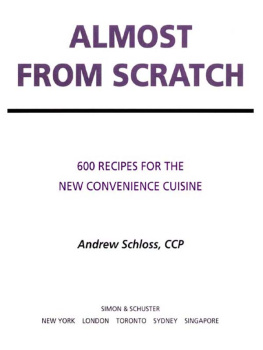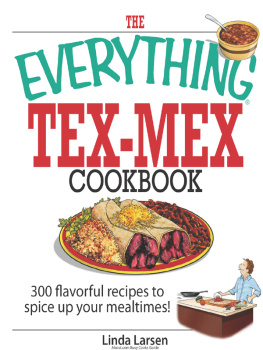

Text 2012 by Jay Bentley and Patrick Dillon Photography 2012 by Lynn Donaldson Published by Running Press, A Member of the Perseus Books Group
All rights reserved under the Pan-American and International Copyright Conventions
This book may not be reproduced in whole or in part, in any form or by any means, electronic or mechanical, including photocopying, recording, or by any information storage and retrieval system now known or hereafter invented, without written permission from the publisher.
Books published by Running Press are available at special discounts for bulk purchases in the United States by corporations, institutions, and other organizations. For more information, please contact the Special Markets Department at the Perseus Books Group, 2300 Chestnut Street, Suite 200, Philadelphia, PA 19103, or call (800) 810-4145, ext. 5000, or e-mail .
Library of Congress Control Number: 2011938606
E-book ISBN 978-0-7624- 4706-0
9 8 7 6 5 4 3 2 1
Digit on the right indicates the number of this printing
Cover and interior design by Amanda Richmond Edited by Kristen Green Wiewora Food styling by Ricardo Jattan Prop styling by Amanda Richmond Photography assistant Jeff Hawe Typography: Archer, Archive, and Rosewood
Special thanks to Montana Camp Antiques
Running Press Book Publishers 2300 Chestnut Street Philadelphia, PA 19103-4371
Visit us on the web!
www.runningpresscooks.com

TO THE LATE A.J. McLANE
SPORTSMAN, AUTHOR, MASTER CHEF, AND GENTLEMAN.

And remember, plants and animals have died for this book. Use it.

CONTENTS
 CHAPTER 9: A SUPPORTING CAST
CHAPTER 9: A SUPPORTING CAST
OF RUBS, SAUCES, DRESSINGS, AND DIPS




T O OUTSIDERS, MONTANA HAS ALWAYS seemed to be a beautiful expanse of misty mountains, crystalline rivers, and endless emerald green prairies. Thats how I found it when I arrived from Washington, DC in 1971, a fresh young civil servant on loan from the federal government to advise Montanas government on fledgling housing projects. I was supposed to stay six months, but, hooked on the beauty, western lifestyle, and my addiction to fly-fishing, I refused to leave.
For all its beauty, lets not forget that Montana, in the beginning, was a hard land populated by hard people who wrested ore from the bowels of the earth, or cattlemen who braved the scorching summers searching for grass and outlived the long winters with sudden freezing northers that always seemed to hit at calving time. The farmers, who every spring planted wheat and barley, gambled on rain and market prices, in essence rolling their dice, their gaming tables being the vast flat windblown and empty spaces along the highline.
The old mining town of Butte, just 75 miles up the road from our restaurant in Belgrade (Montanans think nothing of driving 100 miles for a good meal), had during the nineteenth century a population of over 100,000 and more millionaires than any city in America. It was also home to an international mix of Irish, German, Welsh, Chinese, Slovaks and a host of other nationalities with their own neighborhoods, music, customs, and yes, the best part from my viewpoint, their own food! At one time in Butte, you could walk into a place serving just about any kind of cuisine you desired, from Chinese to German.
Montana was, and still is, a home for people who do things with their hands, working people who like their steaks big and their drinks dark brown. But things have turned upside down in the last 25 years. The great mines have closed and Buttes fortunes have folded.
Still, I believe most things in Montana are changing for the better. Due to creative and farsighted management by the state and federal agencies, Montana hosts a higher game population today than at any other time in the twentieth century. Elk, deer, antelope, and moose have all rebounded from the low population levels of the early 1900s and can now be found in large numbers; people come from all over the world to fish the pristine rivers for wild trout and to hunt big game in the fall. Fortunately for my staff and me, both the fish and game and those in pursuit arrive regularly for open range-style cooking at The Mint. Im proud to say that luminaries such as President Jimmy Carter, Buzz Aldrin, Ted Turner, Tour de France champion Greg Lamont, legendary basketball coach Bobby Knight, broadcast personalities Tom Brokaw and Judy Woodruff, actors Michael Keaton, Ali McGraw, Jane Fonda, Sam Elliott, Kevin Costner, Chris Cooper and Steven Seagal, and CEOs and entrepreneurs ranging from Chuck Schwab to Liz Claiborne have all enjoyed my cooking. With this cookbook you can join them.
JAY BENTLEYBelgrade, Montana
T HE AUGUST SUN RAN BLOOD ORANGE as it slung low toward the far western horizon, casting an incandescent, brassy glow over the windshields of the requisite Chevy pickups as they stood parked along the old main street. The towering granary, a dull white landmark by day, now glowed with antiquity standing over the timeworn town of Belgrade, just off I-90 in southwest Montana. Once, the Northern Pacific ran through it. Once, agriculture and farming ruled. As in a lyric by Lyle Lovett: Once, this old town meant to be really something, once. Today, it is a few-block jangle of low-slung, worn brick buildings resembling a set from the television series Deadwood, but only after the cast and crew had long decamped. Belgrade remains a kind of period-piece town and, I suppose, the term venerable might be applied if one were inclined to be sentimental. But at the time of our arrival we were not in a sentimental mood. We were famished.
My companions, living in an upscale hillside enclave in Bozeman, ten miles down the road, and I had just come off the river. That would be the East Gallatin, coursing near Belgrades backyard, where we had fly-fished the evening hatch for big rainbow and brown trout. This form of sport involves catch and release, meaning each prize is returned to the water, an exercise that bait fishermen deride as playing with your food.
Next page














 CHAPTER 9: A SUPPORTING CAST
CHAPTER 9: A SUPPORTING CAST



